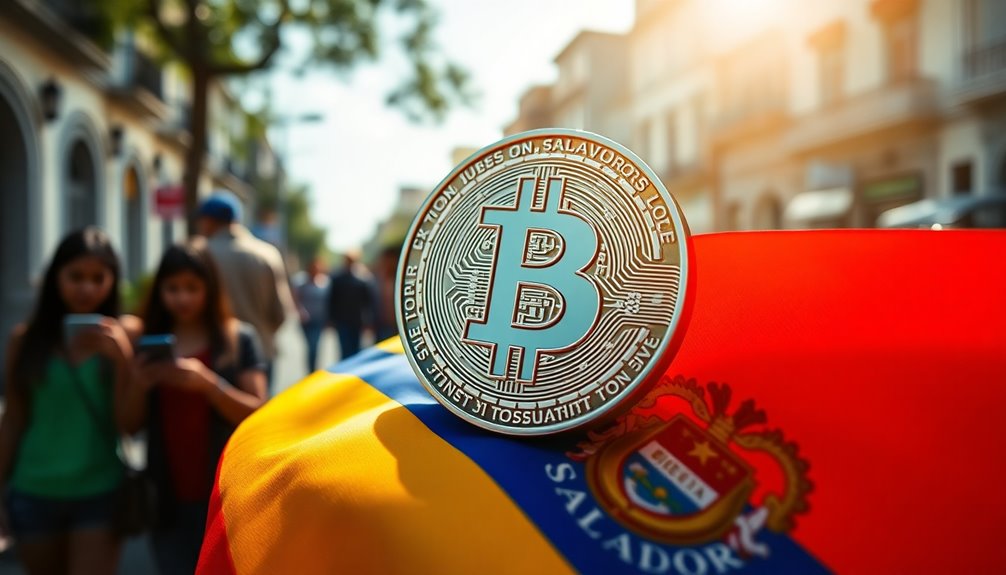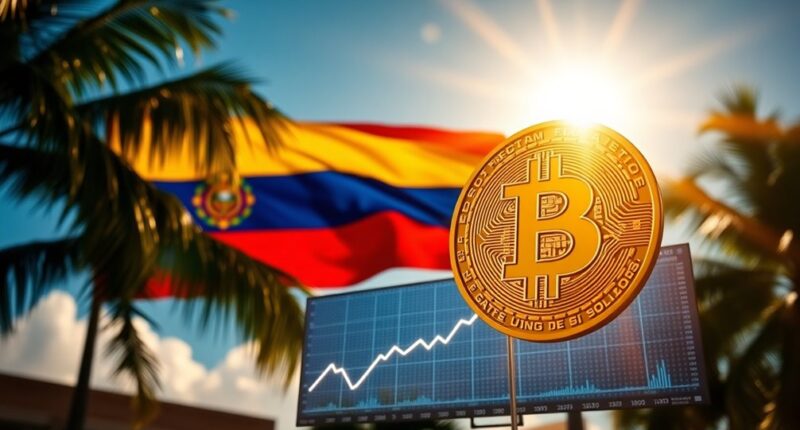El Salvador's recent acquisition of 5 BTC adds to its growing reserve, now totaling about 6,044 BTC. This move showcases the government's commitment to Bitcoin, even as it faces skepticism from its citizens and international bodies. With the reserve's value approaching $610 million, questions arise about the long-term implications for the country's economy and its position in the cryptocurrency arena. What does this mean for El Salvador's financial future?

El Salvador's Bitcoin reserve has reached approximately 6,044 BTC, valued at nearly $610 million. This impressive accumulation showcases the country's ongoing commitment to cryptocurrency, especially as it recently added 5 BTC over a brief 24-hour period. On January 19, 11 BTC were purchased, followed by an additional 1 BTC the next day. These acquisitions come at a time when Bitcoin's price is reaching new highs, further enhancing the value of El Salvador's holdings. Additionally, the country has made a recent addition of $1 million worth of Bitcoin to its reserves.
Since adopting Bitcoin as legal tender in September 2021, El Salvador has attracted considerable global attention. The move has stirred debate internationally, particularly regarding the economic implications of such a bold strategy. While the International Monetary Fund (IMF) raised concerns about potential risks associated with Bitcoin, El Salvador continues to accumulate BTC, showcasing its determination to integrate cryptocurrency into its economic fabric.
The agreement with the IMF allows for private sector Bitcoin acceptance to be voluntary, while public sector engagement remains limited.
The Salvadoran public's perception of Bitcoin is mixed. A recent survey revealed that 92% of Salvadorans don't actively use Bitcoin for transactions. However, Bitcoin does provide a means for many citizens to access digital payment solutions without relying on traditional banking systems. Given that only 29% of the population has a bank account, Bitcoin could play a pivotal role in promoting financial inclusion, offering a pathway for unbanked individuals to participate in the economy.
Despite the low usage rates, the government remains steadfast in its Bitcoin strategy as part of a broader economic approach to diversify currency reliance. The recent purchases underscore this commitment and reflect a strategic decision to leverage Bitcoin's potential benefits, even amid the cryptocurrency's inherent volatility.
El Salvador also aims to bolster its Bitcoin holdings through mining activities and planned purchases, although challenges like market volatility persist. The country's ambitious Bitcoin bond plans have faced delays, but the ongoing accumulation of BTC signals a long-term vision.
Each move El Salvador makes in the cryptocurrency space could impact global market trends, positioning the nation as a noteworthy player in the ever-evolving cryptocurrency landscape.









